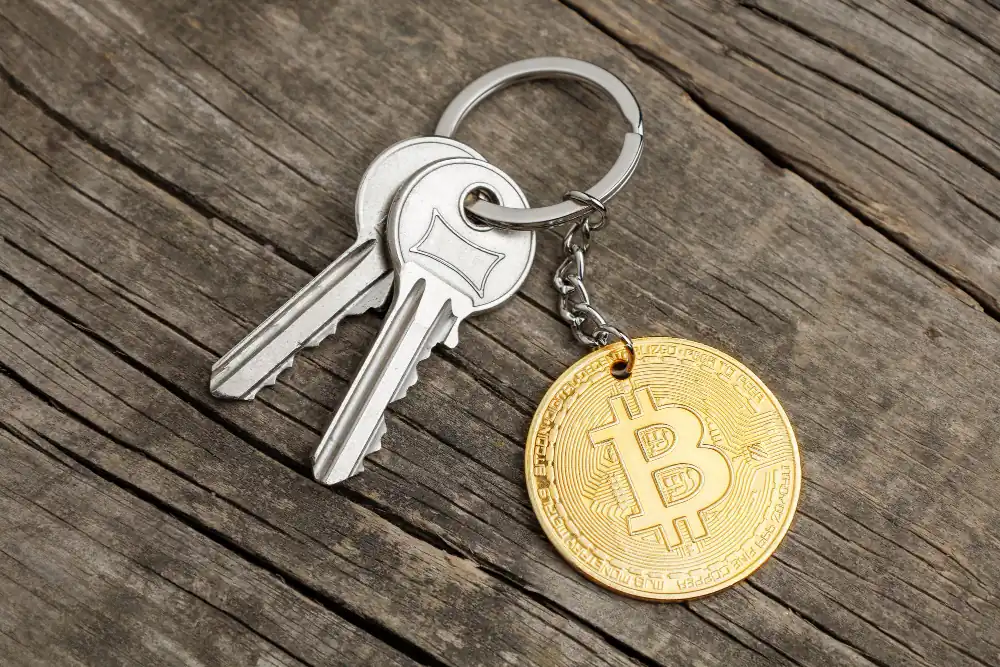Cryptocurrencies have revolutionized the way we perceive the financial world. Emerging from the 2008 financial crisis, Bitcoin, the first cryptocurrency, promised a decentralized, peer-to-peer electronic cash system that would operate without any central authority. In the years since countless other cryptocurrencies have emerged, each one bringing something unique to the digital table. However, along with the many opportunities these digital currencies offer, they also come with unique challenges. One of the most significant challenges is the need for users to manage their private keys effectively. In the crypto world, the phrase "not your keys not your coins" is being referred to as a warning to crypto holders for the risk they face if they don't hold the wallet seed phrase known as the keys, encouraging them to withdraw their funds from crypto exchanges and hold it in self custody wallets. By doing so, you basically eliminate the risk of centralized exchange freezing your funds, and also, the government can't them. If you control your wallet's private key properly, you are the only person who can access those funds. As we delve deeper into the world of cryptocurrencies, it becomes increasingly important to understand the meaning of this phrase and the critical role of private keys. This article highlights the significance of private keys in cryptocurrency, the risks associated with not controlling them, and how you can secure them effectively.
Not Your Keys Not Your Coins: The Phrase Explained
The phrase Not Your Keys Not Your Coins is a fundamental principle in cryptocurrencies. It signifies the importance of private keys in controlling your digital assets. Simply put, your private key is a cryptographic code that enables access and management of your cryptocurrencies. Without control over this key, you have no control over your digital assets. This phrase often highlights the risks associated with storing cryptocurrencies in wallets or exchanges where the user does not control the private keys. When you deposit your coins into a third-party wallet or exchange, you trust that party to manage your private keys responsibly. However, if that party is hacked or the business collapses, you could lose access to your coins. In essence, not your keys not your coins, is a powerful reminder of the importance of taking personal responsibility for the security of your digital assets. It underscores the need for every cryptocurrency holder to understand and embrace the concept of private key ownership.
Importance of Private Keys in Cryptocurrency
Private keys are the cornerstone of cryptocurrency security. These cryptographic codes allow users to access and manage their digital assets. Without them, cryptocurrencies would be impossible to use securely and privately. That's why understanding private keys and how to manage them effectively is so critical for anyone involved in cryptocurrencies. A unique pair of cryptographic keys is generated when you create a cryptocurrency wallet . One of these is your public key, which you can share with others so they can send you funds, the other is your private key, which should be kept secret. Your private key lets you access and spend the funds in your wallet. If a third party gains access to your private key, they effectively control your digital assets. This scenario is why keeping your private keys secure is so important and why the phrase not your keys not your coins is so significant.

Risks Associated with Not Controlling Your Private Key
The concept of not your keys not your coins, highlights the many risks of not controlling your private keys. First and foremost, if you don't have control over your private keys, you're entrusting your digital assets' security to a third party. This situation can be risky, as third parties can be hacked or go out of business, leaving you without access to your funds. Another risk is that of fraud or theft. If malicious actors access your private keys, they could potentially steal your cryptocurrencies. This event is a genuine risk in cryptocurrency, and many people have lost substantial amounts of money. Furthermore, if you lose your private key and have not made a backup, you could lose access to your crypto permanently. Unlike traditional banking systems, cryptocurrencies have no 'forgot password' option. If you lose your private key, there's usually no way to recover it.
Cryptocurrency Exchanges and Private Keys
Many people choose to store their cryptocurrencies on exchanges for convenience. However, this approach comes with risks. When you store your coins on an exchange, you're entrusting the security of your assets to that exchange. Furthermore, many exchanges do not provide users with their private keys. This policy means that you don't truly own your coins when they're stored on an exchange - the exchange does. This system is the essence of the phrase not your keys not your coins. However, this is outweighed by the many user benefits of using crypto exchange platforms. Therefore, using a reputable platform with strong security measures is essential if you choose to store your coins on an exchange.
How to Secure Your Private Keys
Securing your private keys is paramount to keep your digital assets safe. A hardware wallet is one of the most effective ways to do this. These devices keep your private keys offline, immune to online hacking attacks. Another method is to use a paper wallet. This method involves printing out your private keys and storing them securely. However, paper wallets can be damaged or lost, so keeping multiple copies and storing them in secure locations is crucial. Regularly backing up your private keys is also essential. This activity can help you recover your digital assets if your device is lost or stolen. Always store backups in secure, offline locations to protect them from hacking attacks.
Case Studies: Losses Due to Lack of Private Key Control
As you have read, private key security is paramount in cryptocurrency. The phrase not your keys not your coins emphasizes the need for individuals to have control over their private keys to safeguard their digital assets. However, there have been several instances where private key security has caused problems for users in the crypto world. At PlasBit, we believe it is essential to explore and understand some of these case study examples:
Mt. Gox Hack:
In 2014, Mt. Gox, once the largest Bitcoin exchange, experienced a massive security breach resulting in the loss of approximately 850,000 Bitcoins, worth over $450 million. The hack was attributed to compromised private keys, enabling hackers to gain unauthorized access to the exchange's hot wallet. This incident highlighted the importance of robust security measures and the need for exchanges to implement stringent private key protection protocols.
Forgotten Passwords:
Numerous cases have been reported where individuals have lost access to their Bitcoin because of forgotten passwords. The funds become permanently inaccessible without a private key or recovery phrase backup. One notable example is James Howells, who mistakenly discarded a hard drive containing 7,500 Bitcoins, now worth millions of dollars. These instances emphasize the need for users to securely store their private keys and maintain multiple backups to avoid potential loss.
QuadrigaCX Scandal:
In 2019, QuadrigaCX, a Canadian cryptocurrency exchange, faced a significant crisis when its founder and CEO, Gerald Cotten, passed away unexpectedly. It was later revealed that Cotten was the sole holder of the exchange's private keys, leaving approximately 115,000 customers unable to access their funds, totaling around $190 million. This case highlighted the risks associated with centralized exchanges and the importance of implementing robust private key management practices.
SIM Swapping Attacks:
In recent years, SIM-swapping attacks have become a significant concern for crypto users. In these attacks, hackers gain control of a victim's mobile phone number, allowing them to intercept SMS-based authentication codes and gain access to their digital wallets. By bypassing two-factor authentication, the hackers can compromise the victim's private keys and transfer their funds. These incidents highlight the vulnerabilities of relying solely on SMS-based security measures and the need for additional layers of protection.
Vulnerabilities in Hardware Wallets:
Hardware wallets, considered one of the most secure methods of storing private keys, have also faced security vulnerabilities. In 2019, a popular hardware wallet discovered a "Rouge One" vulnerability, allowing attackers to extract private keys and compromise the device's security. Such incidents emphasize the importance of regular firmware updates and thorough security audits for hardware wallets. These case studies demonstrate the challenges when private key security is compromised in crypto. Implementing robust security systems, such as multi-factor authentication, cold storage solutions, and thorough backup protocols, is vital to safeguarding digital assets. Furthermore, raising awareness about the risks associated with private key security and educating users about best practices can help mitigate potential losses in the crypto world.
Tools for Managing and Protecting Your Private Keys
Numerous tools and services can help you manage and protect your private keys. If fully secure, hardware wallets are one of the safest and most user-friendly options. These devices store your private keys offline, protecting them from online threats. Software wallets are another option. These programs store your private keys on your computer or mobile device. While they're more convenient than hardware wallets, they're also more vulnerable to hacking attacks. It is, therefore, vital that they use the most cutting-edge cybersecurity technology. You can also follow numerous security practices to protect your private keys. These include using strong, unique passwords, enabling two-factor authentication, and regularly updating your software. It would help if you also stayed aware of the latest news on crypto cyber threats and any unusual price movements in the leading cryptocurrencies, for example, by using crypto rss and coin list tools.
Protecting Your Digital Assets with PlasBit
At PlasBit, we understand the growing concern of digital asset security around the concept of not your keys not your coins. We, therefore, offer users a robust solution to safeguard their sensitive information and financial assets. One of the key features we provide is the implementation of Two-Factor and Biometric Authentication. This system ensures that only authorized people can access their accounts, providing an extra level of security beyond traditional username and password combinations. We significantly lower the risk of unauthorized access by requiring a second verification. Another crucial aspect of our security infrastructure is the protection of private keys through Secure Enclave. This system ensures that private keys are protected from unauthorized access or extraction, making it extremely difficult for hackers to compromise user accounts. In addition to these measures, at PlasBit, we ensure user funds' safety by keeping them in cold storage. Keeping user funds offline mitigates the risk of theft or hacking, as cold storage is much more secure than online wallets or exchanges. We ensure that only our company funds are kept in such hot wallets, meaning no risk is passed to users, Our comprehensive approach to private key and digital asset security gives users peace of mind, knowing their sensitive data and financial assets are protected. This approach means users benefit from the same level of security when using our other crypto debit card and wire transfer services. By leveraging cutting-edge technologies and implementing robust protection measures, we aim to set a new digital security standard.
The Future of Cryptocurrency Security
As the cryptocurrency space continues to evolve, so will the methods for securing private keys. The rise of decentralized finance (DeFi) and non-custodial wallets is a promising development. These platforms allow users to maintain control of their private keys while still enjoying the convenience and features of traditional banking services. Additionally, new technologies such as multi-signature wallets and threshold signatures are making it possible to secure private keys in a more efficient and user-friendly manner. These technologies allow multiple parties to control a single private key, adding a layer of security. While these developments are promising, it's important to remember that security ultimately lies in the hands of the user. It's up to each individual to take the necessary steps to secure their private keys and protect their digital assets.
Empowering Yourself in the Digital Currency World
Understanding the phrase not your keys not your coins and the importance of private keys is essential for anyone operating in the world of cryptocurrencies. By taking control of your private keys, you're taking control of your digital assets and empowering yourself in the digital currency world. While there are risks associated with managing private keys, there are also many tools and practices that can help you secure them effectively. By understanding these tools and practices and implementing them in your own life, you can enjoy the benefits of cryptocurrencies while minimizing the risks. Remember, in the world of cryptocurrencies, knowledge is power. The more you understand private keys and their role in cryptocurrency security, the better equipped you'll be to navigate the digital currency landscape safely and successfully.







